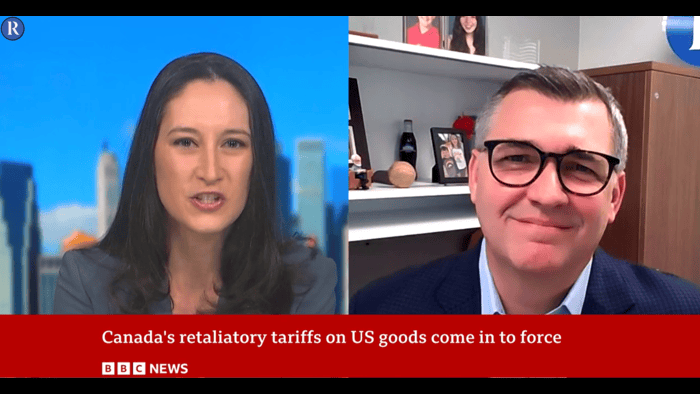Supply Chain Theft and Cargo Theft Legislation
What’s on the Horizon for 2025
- By [ Sarah Gilmore ]
- 11/13/2024
From highways to distribution centers, bad actors are increasingly exploiting supply chain vulnerabilities, prompting policymakers to implement new initiatives aimed at securing freight movement and dismantling organized theft networks. This issue is not confined to one region; organized crime networks now operate globally, with activities spanning Asia, Europe, Africa, the Middle East, and the U.S. These criminals employ a range of tactics, including cyberattacks, insider information, and physical theft, to compromise supply chains and exacerbate these growing challenges. To effectively combat this evolving threat, collaboration among private sector stakeholders, Congress, and the incoming Trump administration will be essential.
As we approach 2025, RILA and our members will be looking for viable legislative and regulatory efforts to address this challenge and safeguard supply chains, and we will engage directly to ensure the retail industry perspective is reflected in potential solutions. Below is an outline of current efforts to combat supply chain theft and a state of play for prospective efforts in the new year.

The Federal Motor Carrier Safety Administration (FMCSA) has ramped up efforts to tackle freight fraud in the trucking industry. Key initiatives include enhanced data-sharing and safety systems that make it easier for carriers and shippers to verify each other's credentials. This transparency mitigates risks posed by fraudsters pretending to be legitimate brokers or carriers—a common tactic in organized theft.
In addition to data improvements, the FMCSA has increased enforcement, with a focus on fraud investigations and penalizing offenders. To protect the integrity of carrier registration, FMCSA recently established a Registration Fraud Team to prevent and correct fraudulent data in its registration system. This team collaborates with industry groups to find new methods for deterring fraud.
The FMCSA is launching a new registration system that features simplified menus and an ID-verification service provided by Idemia, the same company the Transportation Security Administration (TSA) uses for passenger screening. This overhaul includes a feature that limits Motor Carrier (MC) number transfers to corporate mergers, addressing concerns over the resale and theft of MC numbers. In response to rising cases of identity theft, the FMCSA has also launched an awareness campaign to help stakeholders recognize and respond to phishing scams targeting their credentials.
Legislative Efforts to Combat Supply Chain Theft
Despite bipartisan interest in curbing cargo theft, bills introduced during the last Congress stalled before reaching a vote. However, supply chain security is expected to become a top priority in the 119th Congress.
One notable legislative effort is Congressman David Valadao’s (R-CA) Safeguarding Our Supply Chains Act. This bill aims to reduce theft through the establishment of a Supply Chain Coordination Center and Task Force within the Department of Homeland Security, fostering enhanced collaboration among shippers, freight brokers, law enforcement, and policymakers. First introduced in June, the bill has garnered support from lawmakers across the country and is likely to be reintroduced this session, gaining traction as theft-related issues draw more attention from Congress.
Other proposed legislation focuses on tougher penalties for criminal networks targeting high-value goods in transit. Congresswoman Eleanor Holmes Norton (D-DC) and Congressman Mike Ezell (R-MS) have introduced a bipartisan bill aimed at equipping the FMCSA with the necessary tools to protect consumers from fraud in the interstate transportation of household goods. This legislation targets scams where criminals hold consumers’ belongings hostage, demanding additional fees for release. Although primarily aimed at household goods, this bill sets important regulatory precedents that may extend to commercial shipping by strengthening federal oversight of fraud in interstate commerce.
Given that trucking remains the primary target for organized theft, accounting for more than 70% of U.S. freight movement, other legislative initiatives are expected to focus on investment in secure parking facilities and better collaboration between trucking companies and law enforcement. Enhanced intelligence-sharing on theft hotspots, rapid-response protocols, and cross-border law enforcement coordination may become part of a broader strategy to protect goods and drivers across high-risk routes.
Outlook for 2025: The Political Landscape for Supply Chain Theft Legislation
With Republicans controlling Congress and President Trump back in office, we are likely to see a more aggressive approach to addressing supply chain theft, with less emphasis on labor relations and a greater focus on direct federal intervention in theft-prone areas. The new administration may propose tougher penalties for organized crime and support measures to streamline regulatory processes, aiming to reduce bottlenecks that criminals often exploit. Additionally, the Trump administration may favor increased private-sector collaboration on supply chain security, possibly by encouraging tech innovations that improve tracking and protection across the logistics network.
In addition, the administration is expected streamline regulatory processes, allocate more federal resources, and encourage more private sector involvement to combat organized crime, reduce bottlenecks, and enhance supply chain security across vulnerable points in the logistics network.
RILA will continue to advocate for effective supply chain theft policy into 2025 as the threats evolve and grow more sophisticated. We encourage Congress and the new administration to recognize the impact on American consumers, businesses, and our economy, and prioritize solutions to safeguard our supply chains.
For more information about this issue and RILA’s advocacy efforts, please reach out to Director of Government Affairs Sarah Gilmore.
Tags
-
Public Policy
-
Supply Chain


